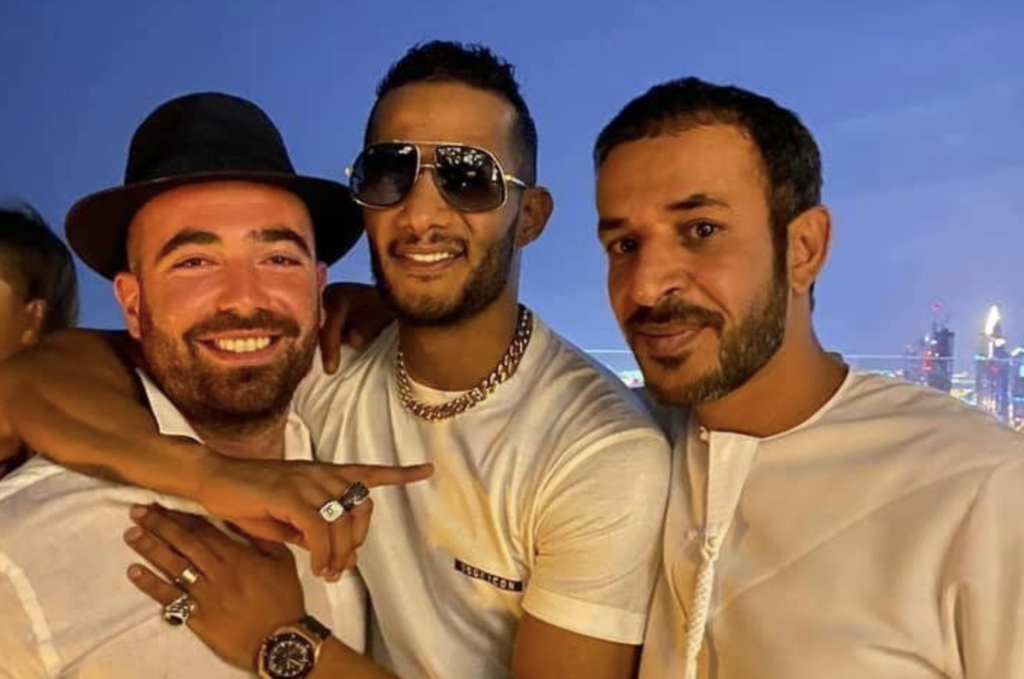Australia/Israel Review
Scribblings: Cold Peace versus Warm Peace
Dec 18, 2020 | Tzvi Fleischer

Here’s a story that perfectly illustrates the difference between the warm and genuine peace Israel is currently developing with the UAE and Bahrain, and the “cold peace” it has had with Egypt for more than 40 years, and also with Jordan for more than 25.
Popular Egyptian film star and rapper Mohamed Ramadan is in big trouble in his native land. He has been suspended from Egypt’s Theatrical Professions Syndicate, which essentially means he cannot perform either as an actor or singer. A soap opera featuring the actor has also reportedly been cancelled. In addition, the Egyptian Journalists’ Union has instructed its members not to publish or broadcast any news or images of the artist. Finally, he is being forced to face court on Dec. 19 on the charge of “insulting the Egyptian people.”
His crime? He was photographed in a friendly pose with Israeli singer Omer Adam, and also with Israeli footballer Dia Saba.
The Egyptian unions, including the Theatrical Professions Syndicate and the Journalists’ Union, have long-standing policies rejecting any normalisation with Israelis – even after more than 40 years of supposed peace. And this apparently extends to being friendly to any Israeli anywhere.
And it is not just labour organisations dating back to the Nasserist era, or social media, that were outraged. Even popular TV host Ahmed Moussa, known for his loyalty to the Egyptian President, Abdel Fatah al-Sisi, slammed Ramadan’s action as “a fully-fledged crime” and called for “deterrence measures” to stop further interactions with Israelis.
Yet Sisi is himself openly cooperating with Israel and its government to a much greater degree than any past Egyptian leader.
It is not actually illegal to interact with Israelis under Egyptian law, as it is in some Arab countries, such as Lebanon. Yet the case against Ramadan for “insulting the Egyptian people”, brought by lawyer Tariq Mahmoud, illustrates that it is not uncommon in Egypt for individuals to be tried for actions not listed in the criminal code but deemed threatening to social peace – including apparently being friendly with an Israeli.
That is how cold Egypt’s peace with Israel is. On a security level ties are quite good, and even diplomatically Egypt and Israel increasingly work together. But Egyptian society, with encouragement from the Government, essentially regards it as a crime to have a friendly interaction with any Israeli.
Now let’s look at the United Arab Emirates, which is actually where Ramadan’s “crime” of being photographed with Israelis took place.
The photos were taken at a party at a Dubai restaurant. The photo of Ramadan and Adam was shared with the world by an Emirati journalist named Hamad al-Mazroui, with the caption, “The most famous artist in Egypt with the most famous artist in Israel. Dubai brings us together.”
Al-Mazroui later deleted the photo, but it was clear that, at the time, he thought the picture was a very positive thing, not some sort of crime.
And why would he think otherwise? Israeli singer Adam had been invited to Dubai by Sheikh Hamad bin Khalifa al Nahyan, a senior UAE royal and son of the country’s President. Adam stayed for weeks, and appears to have been welcomed warmly everywhere. One of the country’s high-profile sheikhs actually threw him a large party for his birthday in late October.
This is not the only sign that the UAE has been very open to Israeli artists. One of the country’s biggest popstars, Waleed Aljasim, even recorded a hit music video, “Ahlan Bik”, with Israeli singer Elkana Marziano. The song, whose main refrain is “I hear you friend far away, far away” repeated in Arabic, Hebrew and English, was written and arranged by Doron Medalie, the lyricist and co-composer of the song “Toy,” with which Israeli Netta Barzilai won the 2018 Eurovision Song Contest.
Aljasim seems to have suffered no significant repercussions for actively collaborating artistically with Israelis – which, to an anti-normalisation ideologue, must surely be many times worse than simply putting your arms around the shoulder of an Israeli at a party, as Ramadan did.
Or what about Dia Saba, the other Israeli with whom Ramadan committed the “crime” of being photographed? He is an Israeli Arab soccer player who was in Dubai because he plays for the Emirati soccer club Al Nasr. That’s right, the UAE has no problem with Israeli citizens playing in its national football league.
Meanwhile, Omer Adam’s host, Sheikh Hamad bin Khalifa al Nahyan, has just bought a 50% share in an Israeli soccer club. Not only that, the club in question is Betar Yerushalayim, which is notorious for a particularly right-wing fanbase which has been intolerant of Arabs at times.
Sheikh bin Khalifa dismissed any concern about potentially racist fans, saying, “We want to set an example to both nations that Jews and Muslims can work together.”
As Israeli PM Binyamin Netanyahu said of the deal, “It’s instructive that an Emirati has bought Betar Yerushalayim. It tells you how things are changing so rapidly.”
Any of this would be unimaginable with the Egyptians, even after 40 years of peace, as the ridiculous persecution of Ramadan demonstrates.
Yet the Israel-UAE honeymoon shows how much the Middle East is changing, with Israel becoming an accepted part of the region, despite the still unresolved Palestinian issue. Someday, the Egyptians will have to catch up with this new reality. Hopefully it will not take another 40 years.
Tags: Egypt, Israel, normalisation, UAE






